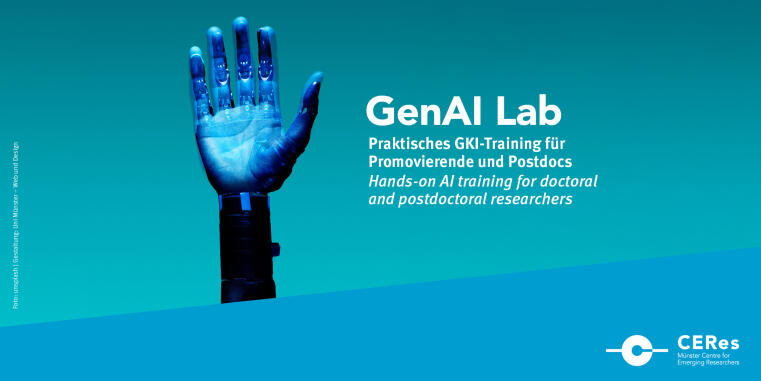
Zielgruppe: Promovierende und Postdocs
Diese digitale, praxisorientierte Workshopreihe ist speziell für Promovierende und Postdocs konzipiert, die die Potenziale der GKI-Technologie in ihren akademischen Tätigkeiten nutzen möchten. Jeder Workshop widmet sich einem spezifischen Bereich und beinhaltet praktische Beispiele oder Fallstudien aus verschiedenen Disziplinen. Die Teilnehmenden nehmen an interaktiven Aktivitäten, Übungen (einschließlich der Prompting-Techniken) und reflektierenden Diskussionen teil.
Dieses Training ist ideal für neugierige Forschende, die wenig bis gar keine Vorkenntnisse oder Anwendungserfahrungen haben, jedoch ihre Forschungsaktivitäten mithilfe von GKI-Tools effizienter, wirkungsvoller und innovativer gestalten möchten. Es richtet sich auch an Forschende mit grundlegenden Kenntnissen und Anwendungserfahrungen, die an weiterführenden Informationen über spezifische GKI-Tools interessiert sind und ihre Anwendung verbessern möchten, ohne sich zu sehr mit technischen Details auseinanderzusetzen.
Die Sprache des Workshop-Titels gibt an, in welcher Sprache der Workshop durchgeführt wird. // The language of the workshop title indicates the language in which the workshop will be delivered.
